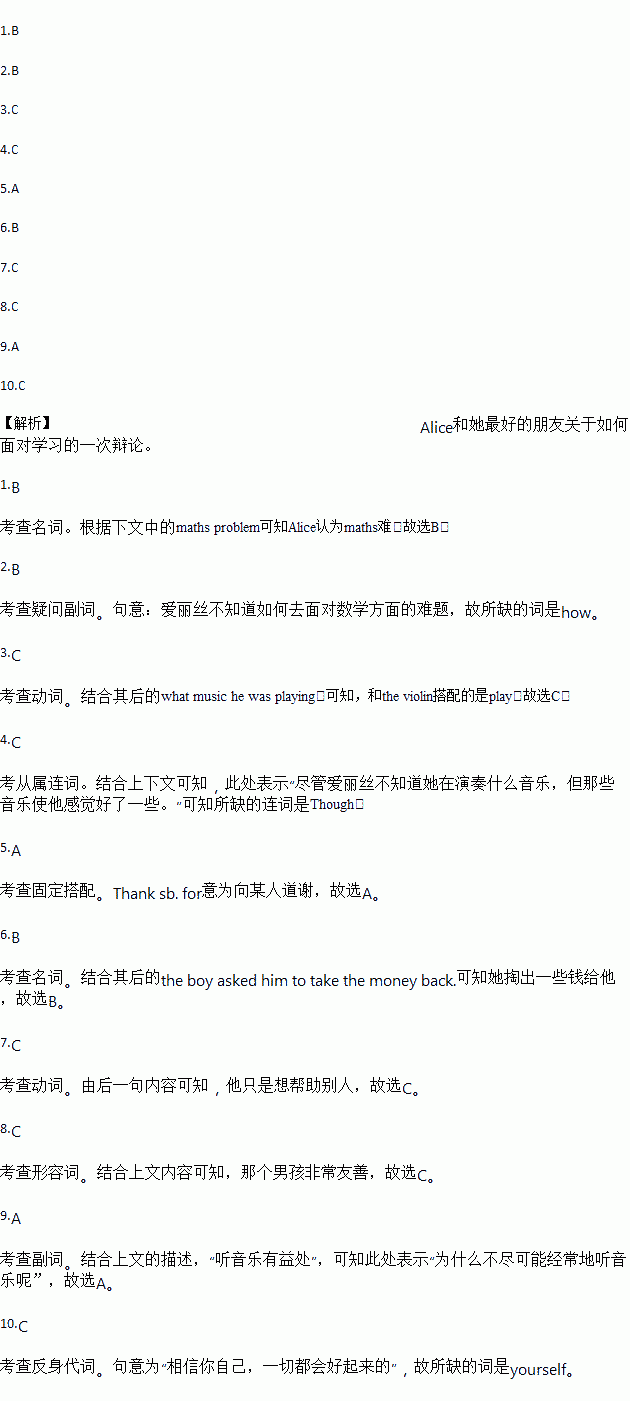题目内容
Alice had an argument with her best friend, Judy last Sunday. She thought.__________ was really difficult and wanted to copy Judy’s homework. But she refused. After that, they didn’t talk to each other for a few days. Alice didn’t know.__________to face her maths problem and she wondered if she could get on well with her friend again.
Yesterday afternoon, she saw a cool boy __________the violin happily by the road when she was walking home from school. The violin sounded so nice that she couldn't help stopping to listen to him.__________Alice didn't know what music he was playing, it made her feel better. After he finished the music,Alice walked over to him and said, “Thank you __________ your beautiful music. It gets me out of the really bad mood(心情),then she took out some __________and gave it to him. To her surprise, the boy asked him to take the money back. He explained that he wasn’t making money by playing the violin. He just wanted to __________others. That’s why he played it by the road .What a _______ boy he was ! Then Alice told him about her trouble.
He said,“You should learn to smile even if you are in difficulty. Listening to music is helpful. So why not listen to music as __________as possible ? Never lose heart! Believe in your friend! She has her own reason. And believe in __________! Everything will go well!”
Hearing these words, Alice went home with a smile. She believed she could make it.
1.A. Chinese B. Maths C. Science
2.A. why B. how C. when
3.A. carrying B. selling C. playing
4.A. Because B. When C. Though
5.A. for B. with C. from
6.A. music B. money C. food
7.A. have B. leave C. help
8.A. safe B. rich C. kind
9.A. often B. loudly C. soon
10.A. myself B. herself C. yourself
 新课标阶梯阅读训练系列答案
新课标阶梯阅读训练系列答案 口算心算速算应用题系列答案
口算心算速算应用题系列答案

 fully. Look at them in the eye.
fully. Look at them in the eye.